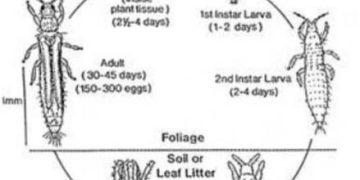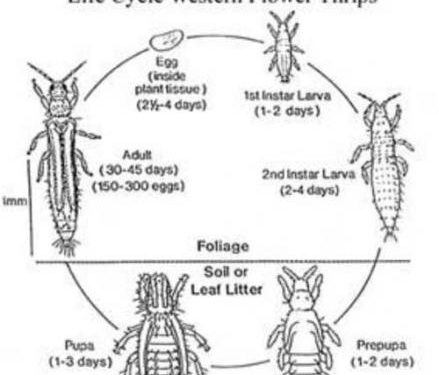The Western Flower Thrips (Frankliniella occidentalis) is a major pest that poses significant threats to crop production worldwide, with economic losses amounting to billions of dollars annually. In this article, we will discuss the life cycle and behavior of the Western Flower Thrips, as well as effective control strategies that farmers, agronomists, and agricultural engineers can use to manage thrips infestations.
According to recent research, Western Flower Thrips is a highly adaptable and invasive pest that can easily develop resistance to insecticides, making it challenging to control. In addition to causing damage to the leaves, flowers, and fruits of various crops, thrips can also transmit several plant viruses, further exacerbating the damage caused. One study found that infestations of Western Flower Thrips can result in a 20-30% yield loss in strawberries, and up to 80% yield loss in greenhouse-grown tomatoes.
To effectively manage Western Flower Thrips infestations, it is essential to adopt an integrated pest management (IPM) approach that combines various control strategies. These strategies may include cultural controls such as crop rotation and sanitation, as well as biological controls such as the use of beneficial insects like mites and predatory thrips. Chemical controls such as insecticides may also be used, but it is crucial to rotate the mode of action to prevent the development of resistance.
In conclusion, Western Flower Thrips infestations can cause significant damage to crops, resulting in substantial economic losses for farmers and agronomists. However, with the implementation of an integrated pest management approach, it is possible to manage thrips infestations effectively. By adopting a combination of cultural, biological, and chemical controls, farmers and agronomists can significantly reduce the damage caused by Western Flower Thrips and protect their crops from further harm.
#WesternFlowerThrips #FrankliniellaOccidentalis #PestControl #IntegratedPestManagement #Agriculture #CropProduction #Farming #Agronomy #Insecticides #BeneficialInsects #CulturalControls #BiologicalControls































